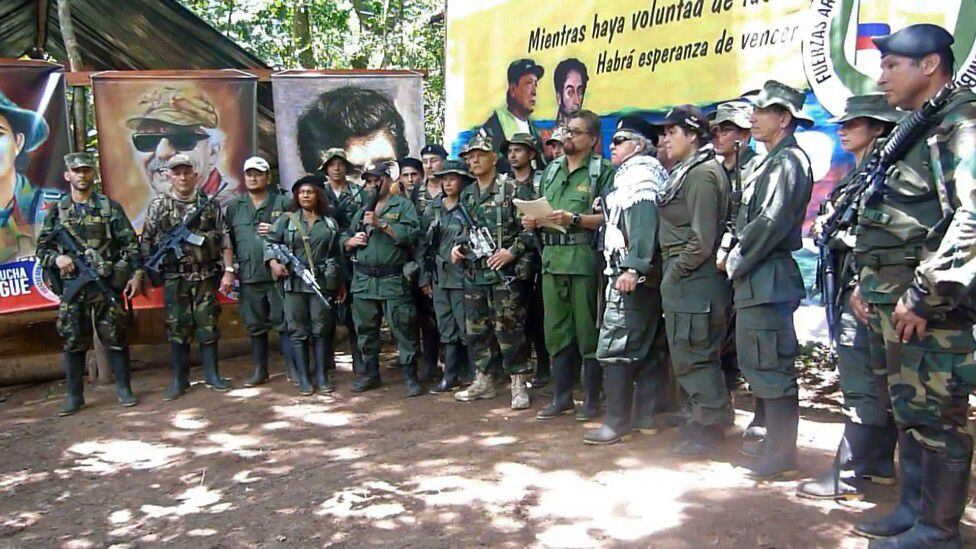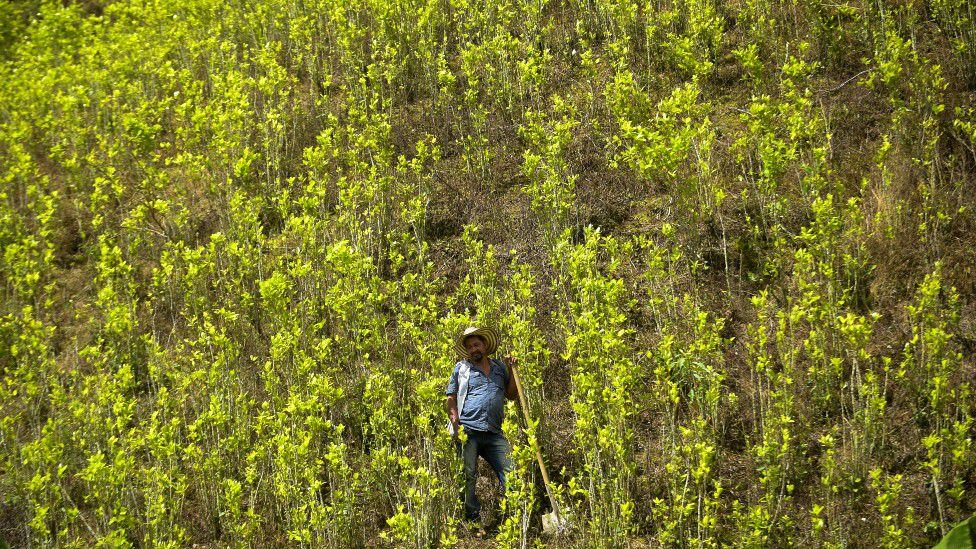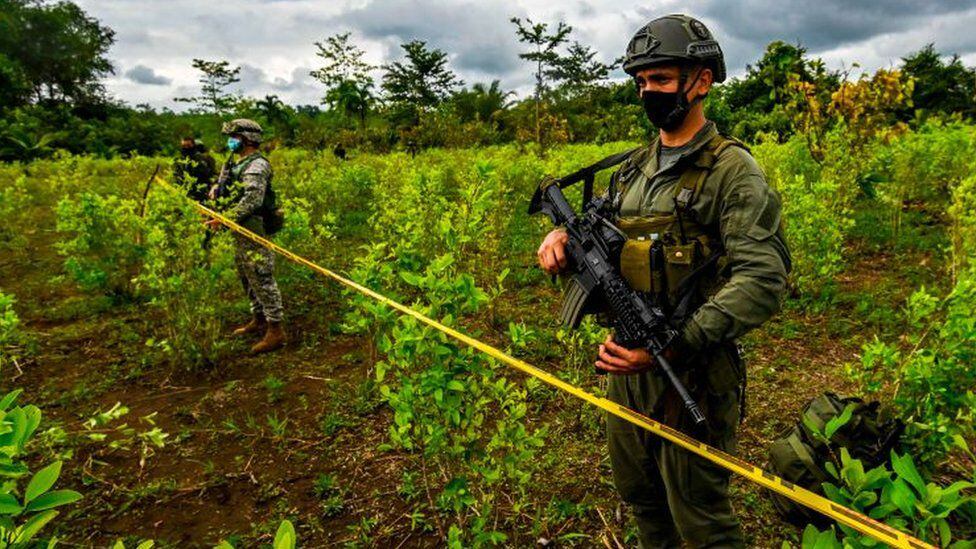The country of 60 years of guerrilla warfare now it will have a former combatant as head of state.
Gustavo Petroa member of the April 19 Movement (M19) in the 70s and 80s, will be the first left-wing president in the country’s history.
“Peace is that someone like me can be president or that someone like Francia (Márquez) can be vice president”, he said in his victory speech.
His coming to power is the result of a long career that began in 1990, when the M19 demobilized and entered the political system with a social democratic agenda.
Since then, Petro dedicated himself to denouncing corruption, human rights violations by the State and the link between politicians and paramilitaries.
Over time, and with an effort at moderation that many interpreted as opportunism, Petro has managed to shed the label of former guerrilla and show himself as an alternative politician who, however, is already part of the system.
While Petro grew as a figure, the war has been diminishing, either because the State managed to corner some of the groups or because a peace agreement was signed, as happened in 2016 with the now extinct guerrilla of the FARC.
However, violence continues in some remote parts of the country, the production of cocaine —linked to the conflict— continues to be the largest in the world, and illegal armed groups have proliferated.
During the campaign, Petro sold his presidency as a “exchange for life and peace”. His promise includes, he has said, a “total peace”, as opposed to the “little peace” which, according to him, was signed six years ago.
“A government of life would not make sense if we do not bring Colombian society to peace”, he said in his speech.
Like no previous government, Petro’s ideological and historical harmony with the guerrillas gives him room for maneuver to advance towards dialogue and demobilization.
“When objective events in favor of peace occur, such as the signing of an agreement or the election of a former combatant, a substantial symbolic change is generated, not only in those who have taken up arms but also in the civilian population, which favors dialogue and reconciliation instead of a heavy hand”, says Diana Rico, a professor of politics at the Universidad del Norte and an expert in the semiotics of war.
“This is, without a doubt, a turning point, a window of opportunity to start a transition with someone (Petro) who shares progressive ideas and who may have empathy towards the rebels.”, says the expert.
LOOK: Gustavo Petro: the biggest challenges he will face in Colombia starting in August
What about the peace agreement with the FARC
The first issue that Petro will have to address in terms of conflict is what the peace agreement with the Revolutionary Armed Forces of Colombia (FARC).
The outgoing government of Ivan Duke He defends his implementation policy of the agreement, but his critics assure that his management was anything but proactive.
Points 1 and 2 of the agreement, referring to rural reform and political reform, made little or no progress during Duque’s four-year term. They are the most difficult to execute due to the interests of landowners and traditional politicians who touch them.
Petro has been critical of that agreement with the FARC. He says that he was not ambitious enough to attack the causes of the war: inequality in property, political exclusion and the vulnerability of the peasantry.
But on the campaign trail, he said that fully implementing that deal will be one of his priorities. In the municipalities most affected by the war, it won by a wide advantage..
“The peace agreement is at the center of the government program, especially in the protection of citizens and territorial security”, says Jorge Mantilla, director of conflict dynamics at the Ideas for Peace Foundation.
“But the challenge is implementation, because Petro has little governability and his relationship with the public force does not promise to be the easiest. His government program is a declaration of principles, but it is not clear what is going to be done”.
Although the vast majority of the FARC guerrillas remain demobilized, in recent years the so-called FARC dissidences have been growing, small independent groups that claim to raise the communist flag of the extinct guerrilla.
“Let us support the government of life and hope”, reads an alleged statement from the Second Marquetalia, one of the dissidents, published this week. “Let’s get involved with everything, with body and soul, in the collective purpose of achieving complete peace for Colombia. We have to talk to stop the war”.

LOOK: The joke of the president of Mexico to those who say they will leave Colombia after Petro’s victory
Resume talks with the ELN
In addition to the FARC dissidents, there is still an old and entrenched guerrilla in Colombia: the National Liberation Army (ELN)which has grown since 2016 and resumed its attacks on security forces in some areas.
Petro said that he will resume peace talks with the ELNinterrupted by Duque in 2019 after the attack on a police school in Bogotá.
The Guevarist and Marxist group reacted to his election with these words: “The ELN maintains its system of struggle and political and military resistance active, but also its full willingness to advance in a Peace Process that gives continuity to the Table of Conversations initiated in Quito in February 2017″.
Mantilla delimits: “The ELN will have to decide how it will behave when a government that is ideologically related to it is in power. Part of what they want to negotiate is already going to be done by Petro and although that may be an advantage in the negotiation, it also depends on how the ELN assumes losing that programmatic relevance.”.

LOOK: This must pay the woman who destroyed Claro’s office during a fit of rage | VIDEO
The other groups (and the military)
Juan Pappier, senior researcher at the Americas Division of Human Rights WatchAdd: “The promise to resume talks, if properly implemented, has the potential to bring relief to many communities, but sadly today the humanitarian challenges in Colombia go beyond this guerrilla and require a new security policy that is more effective in dismantling groups criminals and protect the civilian population”.
Added to the presence of the FARC and ELN dissidents is the Gulf Clana neo-paramilitary organization dedicated to drug trafficking, smuggling and extortion, as well as other groups that do not have political interests, which is why they are more difficult to contain through negotiation.
For this Petro has proposed a “submission policy” through “of judicial dialoguenot political, to peacefully dismantle drug trafficking”.
“But a state cannot renounce the use of force and I think it is unlikely that it will negotiate with everyoneMantilla says.
Pappier adds: “The key question is whether a Petro government will be able to establish a constructive relationship with the defense sector that will allow security policies to be reformed.”.

Petro has spent his entire political career denouncing the crimes of the Armed Forces. During the campaign he even had a rhetorical altercation with the head of the army, Eduardo Zapateiro, a representative of the most conservative wing of the military.
Although he received the backing of some retired generals, Petro generally arouses skepticism and animosity in the barracks.
And a fundamental reform of the Armed Forces has been pending since the peace was signed in 2016.
Paradoxically, One of Petro’s challenges in security is to give confidence to the military: make them understand that they are on the same side.
Source: Elcomercio
I, Ronald Payne, am a journalist and author who dedicated his life to telling the stories that need to be said. I have over 7 years of experience as a reporter and editor, covering everything from politics to business to crime.

:quality(75)/cloudfront-us-east-1.images.arcpublishing.com/elcomercio/GI4DCMRNGA3C2MRUKQYDAORSHA.jpg)





